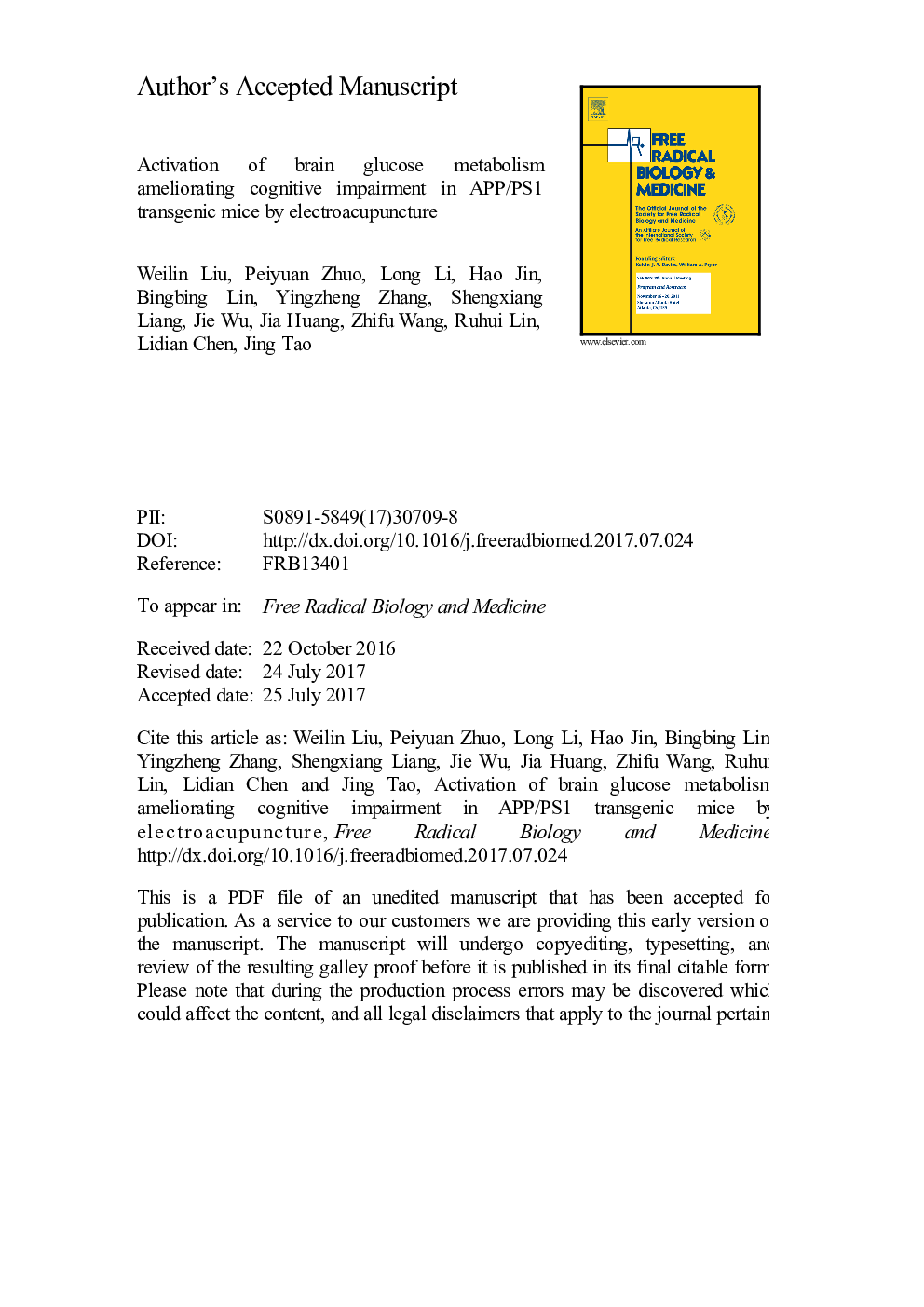| کد مقاله | کد نشریه | سال انتشار | مقاله انگلیسی | نسخه تمام متن |
|---|---|---|---|---|
| 5501679 | 1534930 | 2017 | 43 صفحه PDF | دانلود رایگان |
عنوان انگلیسی مقاله ISI
Activation of brain glucose metabolism ameliorating cognitive impairment in APP/PS1 transgenic mice by electroacupuncture
دانلود مقاله + سفارش ترجمه
دانلود مقاله ISI انگلیسی
رایگان برای ایرانیان
کلمات کلیدی
AβMWMNORAMPK18F-FDGmTOR18F-fluoro-2-deoxy-d-glucoseTHs - THSamyloid-beta - آمیلوئید بتاAkt - آکتcognitive impairment - اختلال شناختیElectroacupuncture - الکترواکوپانکچرIHC - ایمونوهیستوشیمیImmunohistochemistry - ایمونوهیستوشیمیAlzheimer's disease - بیماری آلزایمرEnzyme-linked immunosorbent assay - تست الیزاELISA - تست الیزاPositron emission tomography - توموگرافی گسیل پوزیترونNovel object recognition - شناسایی شیء رمانMorris water maze - ماز آب آب موریسGlucose metabolism - متابولیسم گلوکزmammalian target of rapamycin - هدف پستانداران رپامایسینPET - پتadenosine monophosphate-activated protein kinase - پروتئین کیناز فعال شده با آدنوزین مونوفسفات
موضوعات مرتبط
علوم زیستی و بیوفناوری
بیوشیمی، ژنتیک و زیست شناسی مولکولی
سالمندی
پیش نمایش صفحه اول مقاله

چکیده انگلیسی
AMPK and AKT were activated by electroacupuncture treatment, further triggered GLUTs to increase the energy metabolism, and negatively regulated mTOR to induce autophagy and eliminate Aβ deposition, which delayed the cognitive impairments, particularly in learning and memory ability in AD model mice.344
ناشر
Database: Elsevier - ScienceDirect (ساینس دایرکت)
Journal: Free Radical Biology and Medicine - Volume 112, November 2017, Pages 174-190
Journal: Free Radical Biology and Medicine - Volume 112, November 2017, Pages 174-190
نویسندگان
Weilin Liu, Peiyuan Zhuo, Long Li, Hao Jin, Bingbing Lin, Yingzheng Zhang, Shengxiang Liang, Jie Wu, Jia Huang, Zhifu Wang, Ruhui Lin, Lidian Chen, Jing Tao,